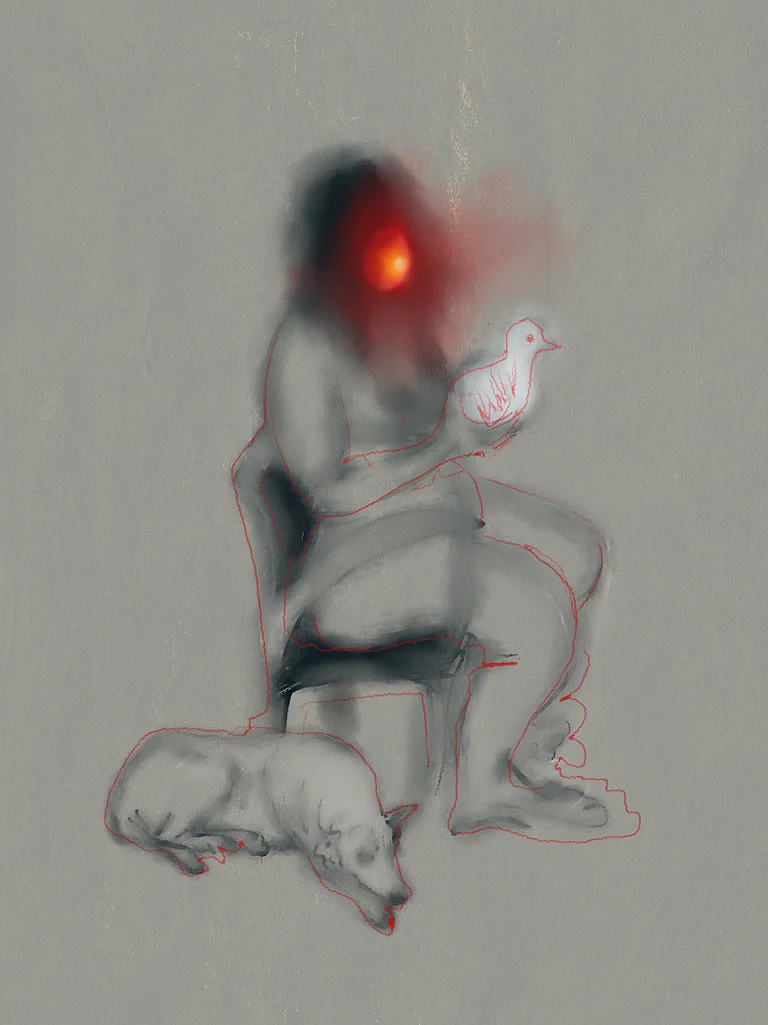Book: Aks by Akhilesh
Published by : Setu Prakashan
Price: Rs 399
Aks or The Reflection is a book by Akhilesh in which he has fondly thought about some of the characters around him in remembrance, oblivion, and sometimes in the space between these two states. There are memories not only of human beings but also of places, which probably spent themselves in the making of the author in such a way that their stature is not less than any human.
This is such a world of experiences and memories, where sometimes the author has explored himself under the pretext of others, and sometimes he has made himself a medium to reach the layers of others' sensibilities. But the amazing thing is that even though the memory of the past is creating the illusion of the collage, the feeling of the hard ground of reality does not disappear from the eyes of the writer even for a moment. In the book, reality is present in its dark and dense form, which is clouding every moment. In fact, the author has also used memories and experiences as tools to capture that complex reality in snapshots.
The book contains interesting recounts of the folly and naivete of Kadipur and Sultanpur childhoods, pictures of admission to the critical literary milieu of Allahabad, the threads of unemployment and then sporadic employment with short breath. There are lively statements of the struggle of life, there is a light of association of top writers, and there is also the prediction of Saturn's intrusion in the sixth house! In this way, the book is interwind with the threads of life, which also stands on the threshold of philosophy step by step, and all this has
been said in this language which is simultaneously artistic and also playful. If this language is interesting, there is also a certain kind of innocence in it.

One chapter of the book is based on father and mother. Reading this, it seems that the relationship of the author with the mother is smooth and transparent. At the same time, there is a lack of chemistry and equation in the relationship with the father. The relationship of the author with the father is like a grammar whose craft is complex. All this is very much like the ordinary houses of the Purvanchal middle class, which have been realized on the pages with a lot of sensitivity and neutrality. This episode distinguishes the fibres of the colors of author Akhilesh's writing, which has compassion inherited from the stories narrated by the mother, and the attitude derived from the stories narrated by the father, which has the skill to see the opposite sides by going beyond the situation.
One full chapter in the book is focuses on author Ravindra Kalia, but the sound of his presence can be felt almost throughout the book. Akhilesh has portrayed the moments very vividly when he first went to meet Ravindra Kalia. The street where his house was located was a cylinder-shaped street, which was like a bright world with diversity in itself. And the world of his house nestled within the street was also full of wonders. A big latch hanging outside the door, the charming Kalia ji sitting on the revolving chair inside the house constantly keeping his cigarettes alighted and the generous Mamta Kaliya sitting on the stairs of the house there. The innocence, with which Akhilesh, a college student from a small town, has been etched out of seeing two stars of the Hindi literary world in front of him, makes that whole scene alive. The author has done this fundamental experiment of keeping the plot and language in such vibrancy not only in this part but it is the fragrance of literary skills spread over the entire plot.
Recalling the association of Man Bahadur Singh, a great poet of Hindi, the author has closely carved out the simplicity and openness of his personality and equally touching the point of his brutal murder. At that point, the reader pauses and joins the author's thinking about why power is always threatened by memories, why the whole system is engaged in destroying beautiful and effective memories!
In the book, the author Mudrarakshas is present in a various postures. From his beautiful handwriting to his desire to have a physical attack on him so that he becomes the pivot of the opposition…his love for animals, the fleetingness of his resentment, the escape of the patient Mudra ji from the hospital, all such incidents have been recorded with conviction and humour.
There is also a chapter in the book remembering politician Devi Prasad Tripathi. Passing through it, DPT appears to be like a storage of raw materials of events. All of other Akhilesh's works show a deep ideology and understanding of politics and with this nuanced view of looking at his time, he has not only subtly captured the extraordinary personality of the politician DPT but also his distracted and complicated political visions.
When Akhilesh has remembered the memories of writer Shrilal Shukla, his character seems like the language of his own famous novel Raag Darbari, which continues to surprise us step by step. His character suddenly turns into a common man by touching the mouth of extremism.
Needless to say, this is a book whose layers open in many directions. It is so dense in its experiences that on the one hand, where you can read it like a memoir, on the other hand, it also gives the reader the taste of the novel.
Although there is no disclaimer in this book named Aks, but all the characters in this book are pure human beings. None of these are great. All of them are actually a different world full of possibilities in themselves, which have sometimes been filmed with a long shot and sometimes have been put on the pages by keeping it close to the eyelids. I hope that it will prove to be a book to cherish for readers of literature.
(Neelakshi Singh is a contemporary Hindi Author and recipient of the Sahitya Akademi Swarna Jayanti Yuva Award. Credited with writing Three story collections and Two novels.)





















